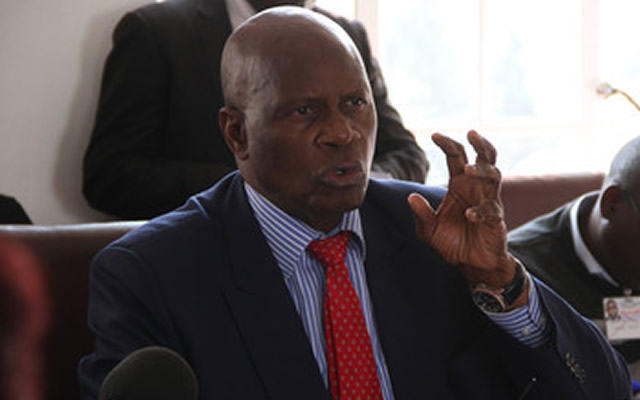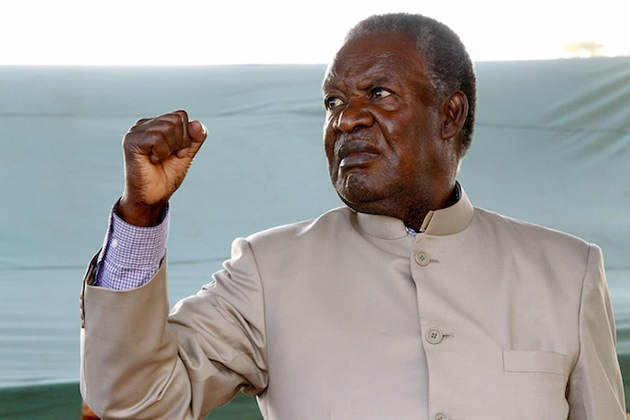EDITORIAL COMMENT: Renewed Anglo, Zim trade ties timely

Zimbabwe’s abundant natural resources and appeal as a prime destination for investments have evidently been irresistible to foreigners and not least the country’s erstwhile colonial master.
A trade delegation, sent by the British government, is in Zimbabwe. This is the first such delegation from Britain in 20 years, which shows good signs of thawing relations between Harare and London.
Though the delegation is not the first from Europe, but it is refreshing that Britain, which was on the war path against Zimbabwe, now appears ready for re-engagement. Britain has for more than a decade been on the forefront imposing illegal sanctions on Zimbabwe after the country embarked on the land reform programme. Most British owned companies also responded by divesting from the country.
It must be noted that Britain reneged on its commitment to bankroll the land reform programme. This formed the foundation of the disagreements between the two countries. This history cannot be wished away, but should not be a stumbling block towards reconciliation. Finance and Economic Development Minister Patrick Chinamasa summed it up at the meeting with British Ambassador Ms Catriona Laing and the trade delegation that this history cannot be erased.
However, what has become important is that relations are beginning to warm up, which is good for both countries. Minister Chinamasa said both nations can benefit from a warm relationship exchanging natural riches and technological transfer. The coming of foreigners to Zimbabwe should be beneficial to the country as it provides us with a chance to assess our political and economic performance. As a nation, we are pleased to note that the British trade delegation’s visit is centred around assessment of opportunities in the Zimbabwe Agenda for Sustainable Socio-Economic Transformation.
Zim-Asset prioritises infrastructure development as key to economic transformation. Investment in infrastructure projects around energy and power generation, water, transport and communications and ICTs is central to all forms of economic development.
The admission by Britain that Zimbabweans can craft homegrown solutions to its economic challenges, through the blueprint, boosts the confidence to keeping exploring effective solutions.
Implementation of Zim-Asset requires about US$27 billion and we are hopeful that the British trade mission would help unlock these funds. The various engagements that we embark on with the visiting teams should give us an opportunity to take self introspection to see where we are doing right and where we are doing wrong. Although Zimbabwe should not wait to be judged by outsiders, some of their comments should be taken with an open mind and in the context of constructive criticism to provide us with a chance to learn. Normally, a good listener has a fair chance of success. When we engage other nations, we must be aware that relations are not a winner take all affair. We therefore should learn to take some flak on our ego. This does not by any means mean that we should allow anyone to trample willy-nilly on our sovereignty which we fought so hard for. Our sovereignty is not negotiable.
However, engagement entails the principles of negotiation implying it’s a give and take affair. As we listen and learn, we should be aware that we may need to refocus our strategies in line with global trends. Although we remain Zimbabwean, true to our flag and religiously protecting our identity, we must embrace developments in the world for we are living in a global village. No one can survive in isolation.
We therefore, should be prepared to adjust.
It is worth mention that the re-engagement process with our erstwhile friends should be on agreed terms. We have for long maintained that no nation should bully us, but we must meet on an equal platform.
For we are a people with a rich history to savour.
We receive the trade missions with open arms mindful that they can be our launch pad to the global capital.
It is our belief that Government officials and investment authorities are well prepared for these trade missions. Such opportunities should not be taken lightly.
We trust that they prepared bankable projects for presentation to the trade mission. We should not be found wanting in terms of detail.
London is key in that it is the hub of global capital. A presence in that part of the world could see Zimbabwe assessing the much need capital for infrastructure development. We also are hopeful that a thorough understanding of Zim-Asset and our investment policies by the delegation will help in our attempts to broadcast that Zimbabwe is indeed ripe for investment.
It is our trust that upon return, the delegation will posture the factual position about our economy, policies and political situation. We hope that they will be ambassadors of goodwill to would-be investors and international financiers. Zimbabwe should occupy its space in the global village. We must occupy the international financiers programmes, we must occupy investors’ centres and make a presence in every part of the world where we can salvage spin-offs for the good of our country.
Now that we have received a number of trade missions, we must now start to go out and hunt. We should not wait for them to come, but let us also be aggressive.
It is time that Zimbabwe came out of its cocoon. We should break the shell and tape into the global space.
After the trade missions we must put in place measures to follow up on the ideas that come through. There must be a strategy to ensure that the visits brought tangible gains to the country. We should not let the opportunities slip away.










Comments